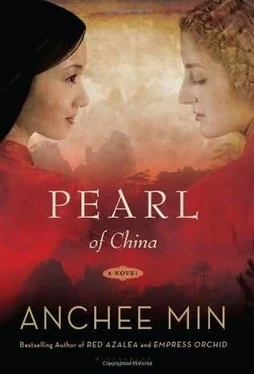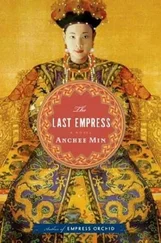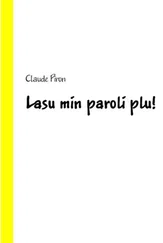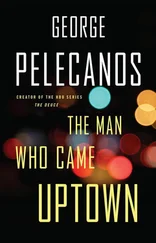April 15, 1917
Dearest Pearl,
How wonderful it is to learn that YOU ARE ENGAGED, and that you are on your way back! My good God! I was deeply surprised to learn this momentous news, the more so because I haven’t heard a word from you for so long. Of course you have my blessing. In your letter to Carie you said that “the decision to register for the marriage” was for the “convenience of traveling.” But do I misunderstand something? Should “convenience” be the reason for marriage? Forgive me for being overly cautious-my own marriage almost ruined my life. But I suspect that your mother’s condition only gave you an additional reason to hurry the happy plans for your marriage.
I am grateful to Carie for sharing your letters and photos. I understood immediately what brought you and Mr. Lossing Buck together. A mutual love of China, for one. How lucky to find someone with a lifelong interest in China in America. And of course you were impressed with Lossing. A Cornell degree, his professorship at Nanking University, and his commitment to helping the Chinese peasants. His agricultural expertise will be greatly appreciated here. He certainly is handsome. You two make a beautiful couple! What a wonderful idea to have the wedding ceremony in Chin-kiang.
I feel that you ought to learn your mother’s feelings. Although she wishes that you were with her, she doesn’t want you to follow in her footsteps. She prefers that you make your life in America. I certainly don’t share those feelings, but I thought that you should know.
Another letter of yours arrived today. I understand that you and Lossing have applied as a couple to the Presbyterian Board of Foreign Missions, and that Lossing was granted the appointment to China as an agricultural missionary. Forgive me for being selfishly joyful, but this is more wonderful news. I can’t wait to see you again.
I have been thinking about returning to Chin-kiang. Life in Shanghai has been exciting, but I feel like a lotus pad floating on the surface-rootless. Every day I speak about helping my country, but in truth I have achieved little of significance. I have been working menial jobs just to cover living expenses. My days are spent discussing politics and shouting for reform. The Republican Party provides a forum for exhibiting one’s debating talent. It is best suited for those who love the sound of their own voices.
I fear I am turning into a teahouse revolutionary. Increasingly, I am aware of how different I am from my comrades. They have been scholars and students all their lives. I have learned much in the last two years, but at heart I am still a girl from the small town of Chin-kiang. I have lived outside the world of books. I have worked, sometimes only to put food in my stomach. It has made me impatient with idealists and dreamers, however well intentioned. Many of my comrades can’t be prevented from rushing to their own destruction. How can they save their country when they themselves are lost?
You have written to suggest that I “meet people where they are.” I am trying. I have always envied your ability to find healing in people’s very presence. You see humanity and kindness in all people. I see the same thing only rarely. Your mother is an example.
You are a different creature than your parents. I understood when you said that you “live in many mansions.” I am trying to bring down the walls of my own culture. Being a Chinese woman, I am prone to certain sentiments. I try not to be as sour as our famous Chin-kiang brown vinegar. I love my country, so much so that I hate her for not being all I want her to be.
I am thinking about establishing a local newspaper when I return to Chin-kiang. I am counting on your contributions.
Love,
Willow
The Nanking railroad station had stood as a witness to wars and sorrow. Built in 1894, it had gone through destruction and restoration several times. The station had a small waiting room and a ticket booth.
Carie wasn’t really healthy enough to travel, but she wanted to be there when Pearl got off the train. The prospect of hosting her daughter’s wedding had given her new energy.
The manager of the train station was a Christian. He invited Carie to rest inside his little ticket booth. “Although it is March, madame, the cold air outside might make you sick.”
Carie didn’t want to go inside until the man told her that the train was going to be late.
We waited. After two and a half hours, we heard the sound of the approaching train. Excited, I ran outside.
The old steam engine puffed smoke and made terrifying sounds. My heart raced in anticipation. It had been four years since Pearl and I had last seen each other. I knew that I was not the same person she had left behind. I wore a fashionable navy blue jacket with a low collar and a matching skirt. I had on a pair of black leather boots.
The train came to a stop. Passengers started to come out. I spotted my friend instantly, although something felt amiss. It had never occurred to me before that Pearl was a foreigner. She stood out among the Chinese crowd. She was accompanied by Lossing Buck, who was tall and brown-haired. I watched Pearl search the crowd, and her eyes stopped on me.
“ Willow, is that you?” Pearl cried. “I can barely recognize you, a fashionable Shanghai lady!”
“Pearl!” I embraced her. “This is you-I’m not dreaming!”
Pearl turned around and introduced Lossing Buck.
We shook hands, but my eyes wouldn’t leave Pearl. Her blue jacket and tight skirt made her look like a model in a Western magazine. The design of her clothes showed that she was proud of her full figure. I remembered that she used to feel awkward about her developing breasts.
Lossing was about Pearl ’s age, twenty-six years old. He had a long face with a big square jaw. He had a thin-lipped mouth and a high nose. His large eyes were deep set and brown. He was friendly and apologized that he didn’t speak Chinese.
“Where is Mother?” Pearl asked.
“She is in the ticket booth waiting for-” Before I finished the sentence, I saw Pearl ’s smile freeze as her eyes looked past me. Shock flooded her face. I turned and saw that Carie had come outside of the booth.
Later on Pearl told me how crushed she felt the moment she saw her mother. I should have warned her that Carie had shrunk to the size of a child.
Carie had powdered her face and rouged her cheeks and lips. But it didn’t help. She looked gravely ill and ghostly. Her missing side teeth made her cheeks look hollow, as if she were permanently inhaling. Her skin was dry and waxy. She insisted on painting her eyebrows herself. They were visibly uneven. The right eyebrow was higher than the left.
“Mother!” Pearl cried, throwing herself at Carie.
Smiling, Carie addressed her daughter as her tears ran. “God is good, my daughter.”
Carie stood straight, as if her illness was gone. “Let’s go,” she said. “Your father is waiting in Chin-kiang.” She told Pearl and Lossing that she had already made all the arrangements for their wedding.
On the train back to Chin-kiang, Carie fell asleep on Lossing’s shoulder. I sat with Pearl across the aisle and insisted that she share the story of her romance. She had met Lossing on a ship. She told me Lossing had been on a Chinese-language tour, and Pearl was returning to China from America via Europe. During the voyage, they had several weeks to become acquainted.
“How did he court you?” I asked.
“With his China studies,” she said, laughing. “Lossing’s academic work outlines what he plans to do in China. The title of his degree thesis is Chinese Farm Economy and Land Utilization in China. Lossing’s plan is to live in China and conduct experiments that will help the peasants.”
Читать дальше












